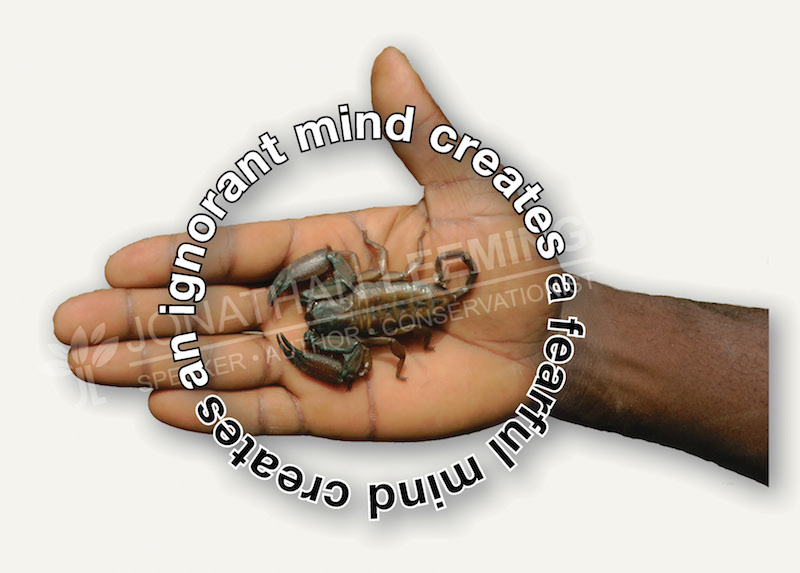My work with venomous animals has taken me to faraway places, interacting with people from different languages, cultures, age groups, economic and education levels. However, despite these differences, there is a common perception shared across these dividing factors.
It doesn’t matter if I am sitting under a tree in the Kalahari Desert chatting to the San people, or speaking over Zoom to chronic urbanites in Texas, the same 2 aspects of my work have fascinated me and at the same time been something I have battled to rationalise.
French writer Anais Nin said “we don’t see things as they are, we see things as we are”. Our values and beliefs are a lens through which we translate the world.

Scorpions represent a conundrum to the human mind. They can inflict trauma and in rare instances, death, yet at the same time, they support the very systems that give us life. How do we, or how can we, reconcile and come to terms with this dichotomy?
It’s interesting to note that those people who are afraid of scorpions are the same people who know the least about them. When our perceptions of the world are based upon what we do not know rather than what we know, we can fully appreciate how venomous animals represent the furthest point of our disconnection from the natural world.
However, the reality of the world is that we share this planet with all of its life forms. Our health and our future are closely linked to the health of the environment. If we want to live a healthy life, we need clean air, clean water, wholesome food, and an environment free of pollutants and poisons. Animals and plants support a healthy environment through how they interact with each other.
Scorpions represent just a single piece of the jigsaw puzzle of life that maintains the health of the environment.

I'm on a mission to reduce the burden of spider bites and scorpion stings across Southern Africa!
Newsletter | Public Events | Books & Workbooks | Presentations | Activities |Professional Development | Shop
